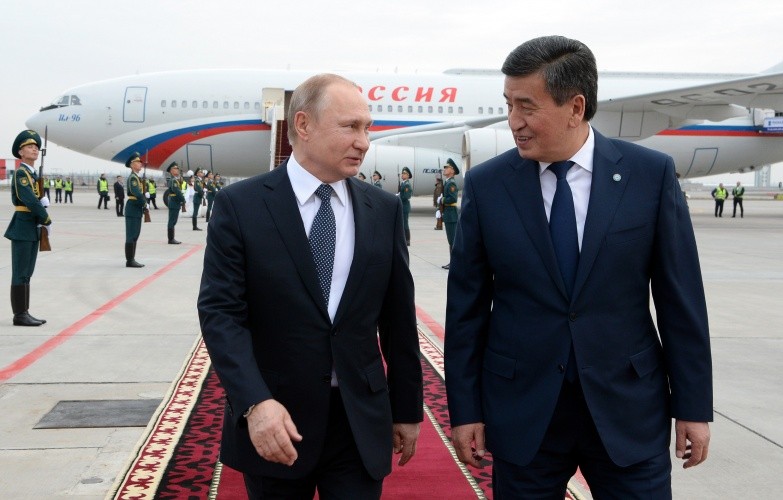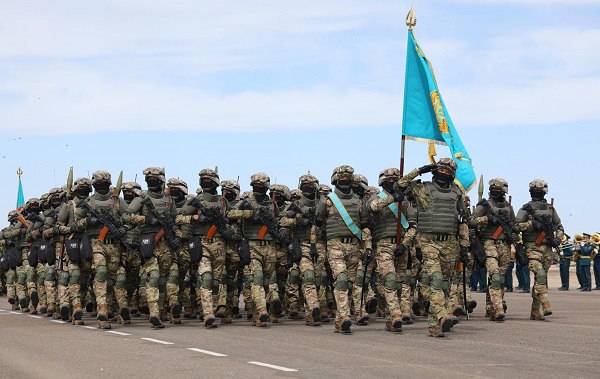BISHKEK (TCA) — During Russian President Vladimir Putin’s one-day visit to Kyrgyzstan on March 28, Bishkek and Moscow agreed to expand the territory of Russia’s military base in the Central Asian country by 60 hectares, RFE/RL’s Kyrgyz Service reported.
According to a protocol placed on Russia’s legal documents website, the annual rent for Russia’s air base in the northern Kyrgyz town of Kant will be increased from $4.5 million to $4.79 million.
Rules concerning the use of drones on the territory of the base will be introduced, the document said.
The Kyrgyz armed forces’ General Staff chief, Raiymberdi Duishenbiev, told reporters that the protocol will also allow for the modernization of runways at the military airport in Kant.
The agreement needs to be ratified by the two sides before it enters into force.
Russia’s air base in Kant was opened in 2003 under the auspices of the Collective Security Treaty Organization (CSTO), which also includes Armenia, Belarus, Kazakhstan, and Tajikistan.
Kyrgyzstan is home to other Russian military facilities: a navy base on Lake Issyk-Kul, a seismology center in the southern town of Mailuu-Suu, and a communication center in the town of Chaldybar near the Kyrgyz-Kazakh border.
In 2012, all four facilities were united in one single entity called the Russian Joint Military Base.
At the start of their meeting in Bishkek today, Kyrgyz President Sooronbai Jeenbekov and Vladimir Putin vowed to develop relations between what the two leaders called two “reliable allies and strategic partners”.
Local media reported that Russia had given Kyrgyzstan $30 million in the form of a grant to be used to cover state-budget expenses and to pay for military salaries and social benefits.








